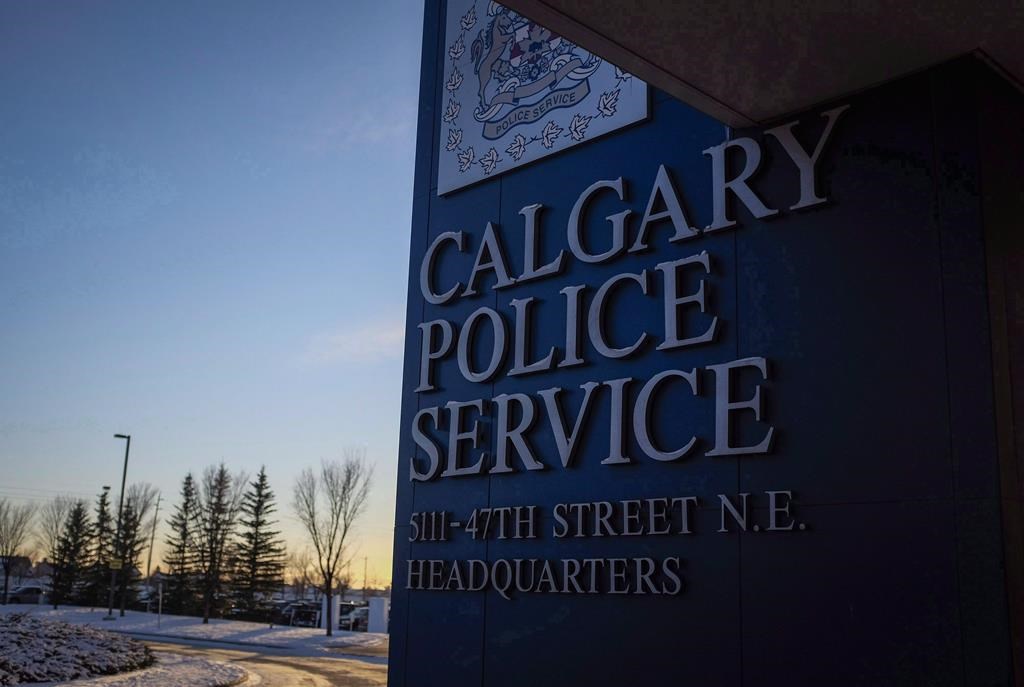The fifth wave of the COVID-19 pandemic in Calgary has hit police as hard as the greater community.

During a meeting of the Calgary Police Commission on Wednesday, the Calgary Police Service reported it has accumulated nearly double the positive cases among CPS members since the Omicron variant’s arrival in the province than during the entire pandemic before that.
Between March 2020 and November 2021, 239 CPS members had tested positive for COVID-19. In the last two months, 428 members tested positive.
Currently, CPS has 61 active COVID-19 cases, with 83 per cent of those among sworn members.
Deputy Cheif Raj Gill said 93.75 per cent of CPS members have been fully vaccinated with two or more doses.
An internal analysis revealed of those members who tested positive for the coronavirus, 94 per cent had been vaccinated.

“That number is reflective of what’s happening in the greater society, in terms of fully-vaccinated people that are testing positive for COVID,” Gill said.

Get weekly health news
But the police service isn’t planning on changing its masking guidance.
“We continue to follow the orders of the chief medical officer of health in Alberta and in addition to that, our occupational safety officers are examining every time we have a COVID-positive case — through our incident management team and our health nurse — to see if there’s any prevention efforts we could take in those environments,” the deputy chief said.
At its peak, around 100 members had tested positive and around 50 were self-isolating, CPS Chief Mark Neufeld said, adding it’s been steady at an 80-20 split between sworn and civilian members.
“The most challenging impact, of course, has been at the front line,” Neufeld said. “Obviously, we’ve got some staffing shortages that we’re experiencing at the front line in any event. And so on top of it, when we lose people on the front line, it can actually make it very difficult.”
CPS members have been pulled from other areas to be redeployed on the front lines, known as patrol support advisory teams.
- ‘Deeply ashamed’: Canadian Medical Association apologizes for harms to Indigenous peoples
- Kate Middleton marks quiet return to work following cancer treatment
- Health Canada gives 1 year to remove BVO from drinks. What are the risks?
- Never heard of eastern equine encephalitis? Cases are ‘likely underreported’
“We started off with seven members working day shifts (and) seven members working night shifts that are available to be redeployed across the city whenever we have shortages,” Gill said. “And then we continue to pivot and monitor the resource needs and we will be able to adjust it and look at other resources if required.”
Neufeld acknowledged the redeployments have impacted other areas of CPS, but commended the work done to manage officer resources “quite effectively.”
“I think primarily we will use overtime if we have to, of course, but for the most part, I think the incident management team and the group that’s been working on that has been dealing with the logistics to make sure there is extra bodies out there as frequently as they can,” he said.

Gill added that the CPS vaccination policy has resulted in only a pair of resignations and “several members” are in the disciplinary process.
CPS members who don’t get vaccinated are subject to twice-weekly rapid antigen testing to stay in line with the policy.
The current stock of rapid tests are due to expire in March, a matter CPS said it is working with the City of Calgary to address.









Comments